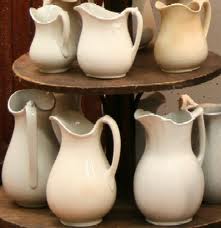DH wrote a thoughtful post on our contribution to the frustration and desperation in the two-thirds world that contributes to the emergence of people like Osama bin Laden:
“We are all guilty of complicity in supporting the policies and actions of a government and culture that exploits other nations. We all drive cars and do precious little to push any significant change in our convenience of travel, say change to public transportation.
We all continue to buy “cheap things” (iPods, radios, kitchen appliances, other things) made in other countries (China, Mexico, India) where the workers get paid significantly less than we get paid, and where their wages are unfair and insufficient to live decently.
This means that the price we pay for the products is subsidized by workers off-shore. This means that we exploit their work, exploit their lifestyle, exploit the future of their kids, exploit their health.
We look longingly at (and many times move into) larger living quarters, more plush houses/condos. This also means heating and cooling these environments with ever more scarce energy resources. We use building materials which are ever more scarce to build these living quarters.
We drive SUVs which use more fuel than smaller cars. We pay “through the nose” for the fuel, but this price is not even the true price of the fuel when you consider the all environmental costs, social costs and so on of driving such vehicles.
We send our garbage, our unwanted plasma TVs, LCDs, computer boards and other debris, to some African nation to rot and decompose over there. These folks in that African country end up paying our cheap disposal costs with their health, their environment being polluted beyond repair.
We simply shift our environmental cleanup cost to them. I would call this exploitation. What would you call it?
I do not mean to demonize you, the reader, in any personal way. I am certain that many of the people reading this feel a discomfort and perhaps just gloss over this article. It is HARD to give up a way of life that has comforts, even when we realize how it exploits others.
So we delay dealing with the issue, push it under the carpet. Until some other time.
But all the while, the costs rise, the price rises, and eventually the “platform of the oppressed” (as my friend so aptly call it), solidifies, becomes hardened, perhaps more radical in seeking its own salvation.
What I’d like to see is a tiny movement from each of you readers: Resolve now, today, that you will eliminate one item of empty luxury from your life, an item which exploits others in this country or other countries. Just eliminate or give up ONE item a week, one item a month. No more.
You will make this a wonderful world to live in – for you, for your children, and for me.
Thank you!”
You may also like Cry of the Poor and What Can You and I Do?




